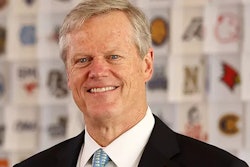When the NCAA coined the term “student-athlete” in the 1950s, it set in motion a propaganda machine that many scholars have taken shots at over the years.
Finally, in 2020, it looks like scholars, journalists and others are ready to retire this oppressive term.
In July, when I wrote a column for Diverse calling to Abolish the Term Student-Athlete, I hoped the spirit of social justice afoot might find room to take on this cause as well. When the student newspaper at the University of North Carolina at Chapel Hill, one of my alma maters, said in August it would no longer use the term in its articles, I was heartened.
But when John Feinstein, a noted sports journalist, wrote about the term in Sunday’s Washington Post, social media lit up. And social media, it seems, has the power to make change. Since then, editors at Sports Illustrated have modernized their style guide and will no longer use the term student-athlete. In an email exchange, Ryan Hunt, Co-Editor-in-Chief of SI noted “it was an easy call” especially considering other neutral and contextually relevant alternatives. He and others at one of the leading sports journalism platforms support the recent push to end the use of the term.
The change has been a long time in the making since Allen Sack and Ellen Staurowsky, who wrote about this issue in their 1998 book College Athletes for Hire, and later in the Journal of Sport Management in 2005.
The term at first seems innocuous, and some college athletes themselves embrace it, proud of their ability to manage both academics and athletics. But many athletes are unaware of the term’s long history; in the decades since the 1950s it has been used to classify athletes in a way that deprives them of some of the rewards of their athletic endeavors.
As stated in the July column, the term was coined in the 1950s by the NCAA president at the time and the Association’s legal team to avoid paying worker’s compensation to the widow of a football athlete who died after a game injury, while also preventing future generations of college athletes from receiving worker’s compensation or pay-for-play.














